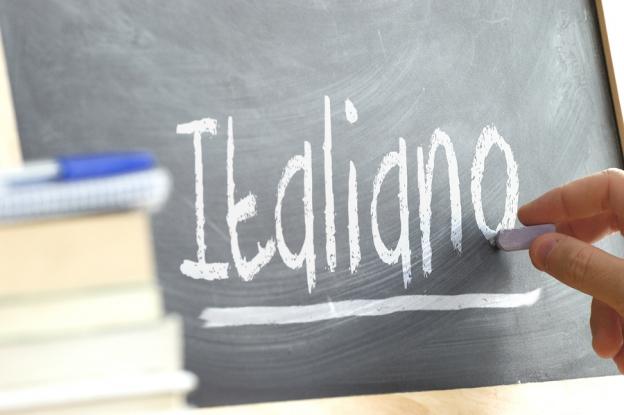The next verb in my ongoing irregular present tense verb series is the verb ‘dire’. This verb often means ‘to say’, but it can also mean ‘to tell’’. A verb can be defined as a doing or action word. Here you can see three example sentences with today’s verb ‘dire’:
Io dico di no - I say no
Tu dici ‘ciao’ - You say ‘hello’
Noi non diciamo niente - We don’t say anything
Italian verbs are grouped into three types, -are verbs, -ere verbs and -ire verbs. Italian verbs can be either regular or irregular. Regular verbs follow a pattern, whereas irregular verbs don’t follow one. So, we just have to learn them individually. You may already have done this with two very common irregular verbs – ‘essere’ (to be) and ‘avere’ – (to have). If you need a reminder, have a look here and here.
I have also covered some other common irregular verbs, check them out: ‘fare’ (to do), ‘stare’ (to be),‘dare’ (to give) and ‘bere’ (to drink).
So, returning the verb ‘dire’ (to say) - see it in full below:
Io dico - I say
Tu dici - You (singular) say
Lui / lei dice - He / she says
Noi diciamo - We say
Voi dite - You (plural) say
Loro dicono - They say
As you can see, the endings are the same as regular -ere verbs. It’s the beginning of the word which is different, in grammar terms this is called the root.
Here are some sentences using the verb ‘dire’:
Io dico una preghiera – I say a prayer
Tu non dici la verità – You don’t tell the truth
Lui dice che è un bel film – He says that it’s a good film
Lei dice di essere una brava studentessa – She says that she’s a good student
Noi non diciamo una parola – We don’t say a word
Voi dite che qui la pizza è buonissima – You say that the pizza here is really nice
Loro dicono che è vero – They say that it’s true
There are some common expressions with the verb ‘dire’ that it can be useful to learn.
For example ‘un modo di dire’ is a ‘common saying’ in Italian.
Another common expression is ‘voler dire’: to mean. Here are some examples:
Cosa vuol dire ‘un verbo’ – What does ‘a verb’ mean?
Non ho capito. Cosa vuoi dire? – I don’t understand. What do you mean?
Vuoi dire che non partiamo domani? – Do you mean that we’re not leaving tomorrow?
Let’s look at some other expressions and idiomatic phrases with the verb ‘dire’:
Dire la propria
Literal meaning: to say one’s own
Real meaning: to express your opinion, to give your opinion, to have a say
Example: Certo che Marco ha voluto dire la propria! – Of course Marco wanted to give his opinion!
Dire pane al pane e vino al vino
Literal meaning: to say bread is bread and wine is wine
Real meaning: to call a spade a spade i.e. to call something by its true name
Dirne quattro
Literal meaning: to say four of them
Real meaning: to give someone a telling off, to give someone a piece of your mind
Tra il dire e il fare c’è di mezzo il mare
Literal meaning: There is the sea between what is said and what is done
Real meaning: It’s easier said than done













